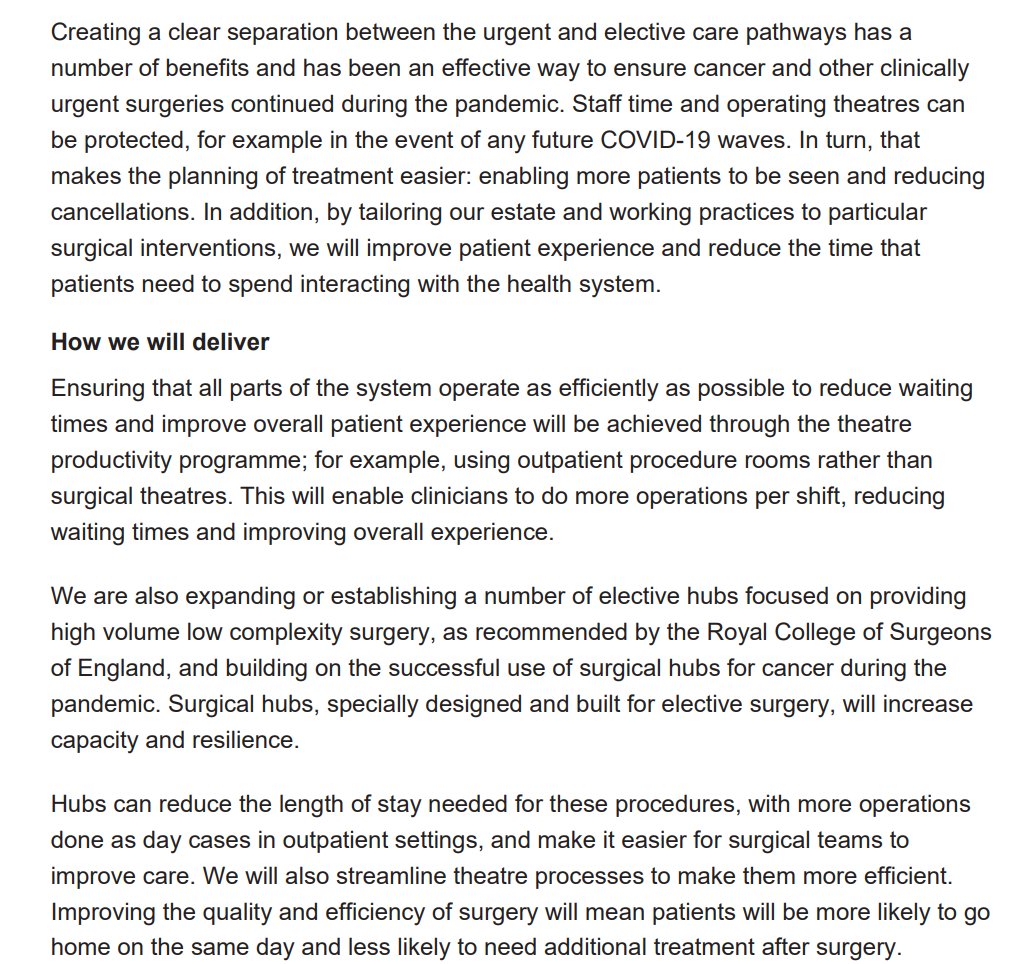
@UKHSA data today marks significant milestone. Since start of pandemic NHS has treated over one million hospital patients with COVID-19. Although we've returned, in many ways, to pre-pandemic ways of living and working, NHS still has major challenges from COVID. New🧵1/18
Firstly, on @mariecurieuk’s #DayOfReflection, I want to remember those who have lost loved relatives and friends over the course of the pandemic. Important we remember them appropriately. Particularly thinking of NHS staff who lost their life in line of duty. 2/18.
Since 2020 NHS has managed a series of successive waves of COVID. Between then and now, the number of inpatients with COVID has fluctuated between 3,800 and 16,500. During the height of the pandemic, we were admitting 8 hospitals’ worth of patients per day due to COVID. 3/18
Yet even at very height of pandemic, NHS was never a COVID-only service. We continued to treat at least two patients with other conditions for every one with the virus. But, like other health systems across the world, we do have a significant backlog of care to work through. 4/18
And COVID-19 is still very much with us. Right now, there are over 8,000 people in hospital with COVID and nearly 200 people requiring ventilation. The number of COVID patients occupying hospital beds has increased 12% in last 7 days with many patients over 75. 5/18
Admission rates highest in North East - 14 per 100,000 people. Particularly striking COVID hasn’t been seasonal as many were originally suggesting. As graph below shows, we’re going through series of successive waves, with each new one hot on heels of previous one. 6/18 

There have been huge successes like the NHS vaccination campaign - first in the world - which has delivered over 144 million vaccinations to date. And rollout of COVID treatments which have benefited more than 80,000 of the highest risk patients since December 2021. 7/18
These have been crucial in reducing mortality and serious illness. And status of NHS as a single national health service crucial in successful development and roll out of both the vaccination campaign and the anti-viral drugs, working closely with UK life science industry 8/18
However, we know that dealing with COVID, or any infectious disease, is labour-intensive and makes delivering care much more difficult and time consuming for our frontline NHS staff. A set of significant impacts we need to remember and take full account of….9/18
…NHS staff have to take different steps to minimise transmission to protect vulnerable patients. These include cutting the number of beds in a ward to increase social distancing; “cohorting” covid patients in the same area; and finding single rooms for the most vulnerable. 10/18
This makes bed management in NHS hospitals much more complex, particularly given high NHS bed occupancy rates. Patients hospitalised with COVID also tend to require a longer stay than average, again bringing a significant impact on bed occupancy and activity levels. 11/18
Given that NHS staff reflect the communities they serve, rises in COVID community rates also lead to increased staff absences at the NHS frontline. Simply put, high levels of COVID admissions have a knock-on effect on wider hospital capacity in a number of different ways. 12/18
NHS staff are working hard to tackle care backlogs and have made significant progress on reducing the number of people having to wait the longest for care. But all these factors make it harder for hospitals to complete as many appointments and procedures as we would want. 13/18
The Elective Recovery Plan, published in February 2022, set out ambitious targets for reducing long waiting times and treating as many patients as possible, as quickly as possible. And we are delivering against this plan, making good progress⬇️:
https://twitter.com/NHSEngland/status/162867357748129792214/18
However, because some patients understandably delayed seeking treatment during the height of the pandemic, we are seeing extremely high demand for care. And higher numbers of patients are presenting with more advanced illnesses requiring a longer hospital stay. 15/18
We also need to remember the impact of the current industrial action. Last week saw 175,000 appointments and procedures rescheduled to protect emergency, critical and urgent care for patients. This will inevitably impact on efforts to tackle the COVID backlog. 16/18
The plan made clear that achieving the targets was contingent on COVID levels remaining low enough for the NHS to restore normal conditions and stabilise staff absences. Yet since the publication of the plan, there have been more than 387,000 patients admitted with COVID 17/18
As a result, while NHS staff continue to do an amazing job, pulling out all the stops to tackle backlogs, rebook appointments and drive down waiting lists…the continued prevalence of COVID means hospital capacity is not always as high as we would like. 18/18
• • •
Missing some Tweet in this thread? You can try to
force a refresh







